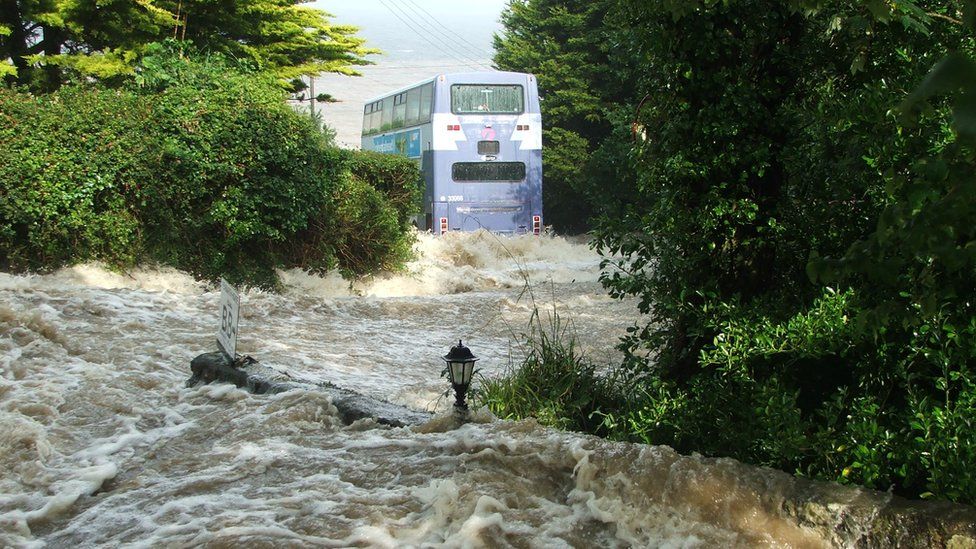Climate change could lead to more extreme flooding in Cornwall
- Published

Extreme weather events like the devastating floods in Boscastle could become more prevalent due to climate change, a report has found.
Cornwall Council commissioned climate scientists to produce the report.
It found sea levels are likely to rise by up to 1m (3.3ft) by the end of the century.
Professor Stephen Harrison, who led the work on the report, said: "We are not doing enough nationally and internationally."
The professor of climate and environmental change at the University of Exeter, added: "Cornwall has clearly taken climate change seriously pretty quickly, maybe not as quickly as it should have done, but Cornwall is not unique in that.
"Cornwall does have some real issues which are rather contradictory though.
"We have a regional airport that is important for the local economy and development of space infrastructure.
"That is important to keep open and at the same time we are declaring a climate emergency. There are places where the left hand doesn't always know what the right hand is doing."
The report was commissioned as part of the climate change action plan drawn up by the council after it declared a climate emergency in 2019.
Last year it also declared an ecological emergency, the Local Democracy Reporting Service (LDRS) said.
The report looks at the impact climate change could have on the way people live in Cornwall in the future.
As well as weather events it also considers the potential impact on agriculture, health and wellbeing.
Potential changes in Cornwall include the possibility of high impact flooding like that seen in Boscastle in 2004 and Coverack in 2017.
It also projects stronger storms and higher wind speeds, faster coastal erosion, along with more heatwaves and severe droughts.
Prof Harrison said climate risk assessments are usually over larger areas or entire countries, and said he believed that Cornwall was the first place to have such an assessment for a similar sized area in the UK.
Martyn Alvey, Cornwall Council Cabinet member for the environment and climate change said: "It strongly underlines the need for us to act - to be aware of our impacts on the climate and to understand the risks that are coming."
Follow BBC News South West on Twitter, Facebook and Instagram. Send your story ideas to spotlight@bbc.co.uk
Related Topics
- Published19 July 2017
- Published12 January 2022
- Published23 May 2022
- Published18 January 2022
- Published16 August 2014